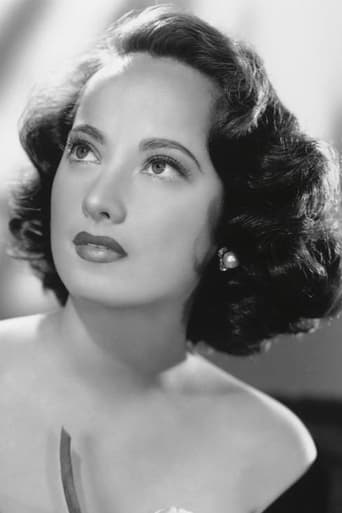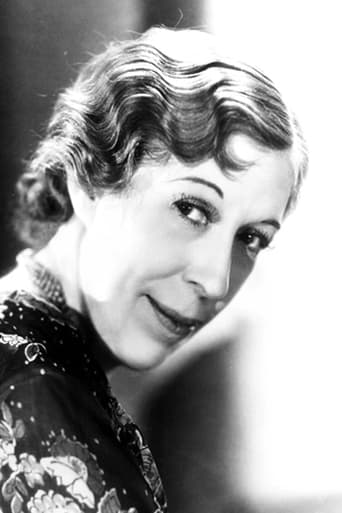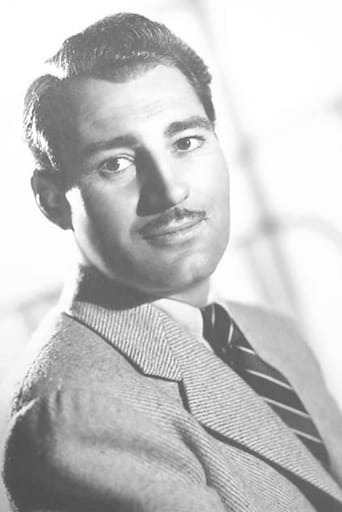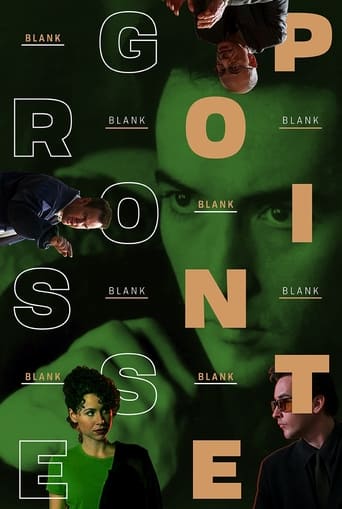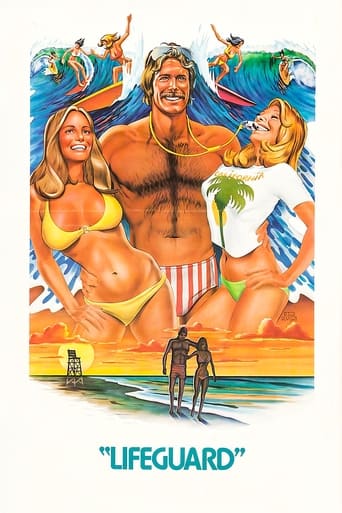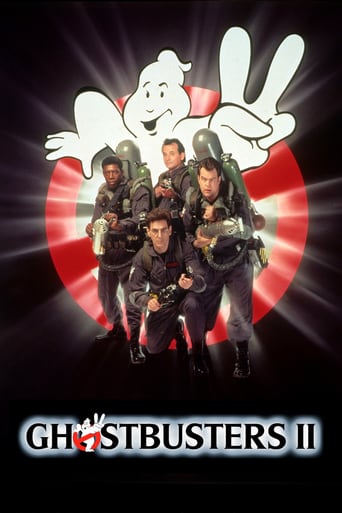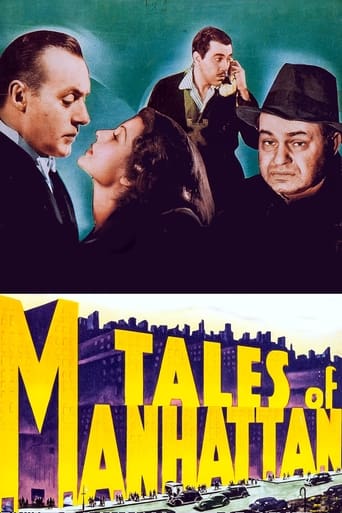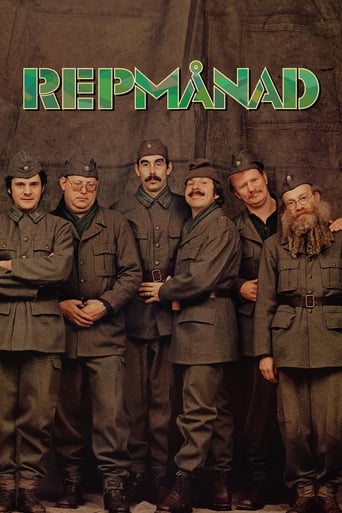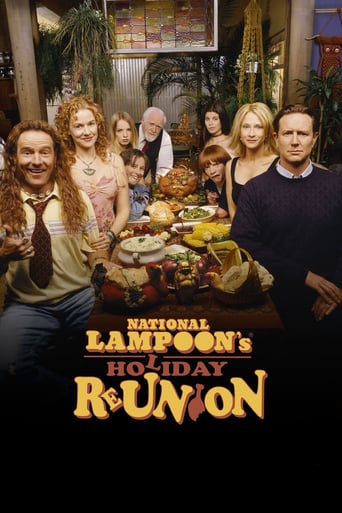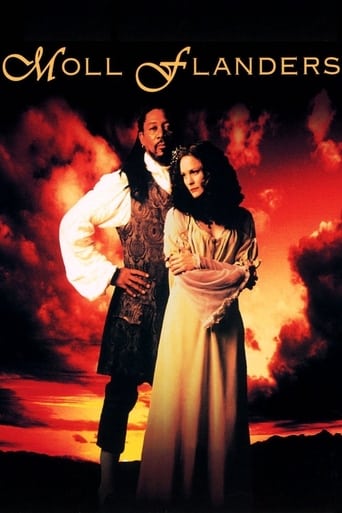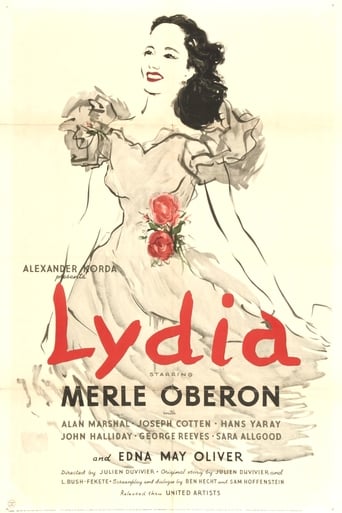
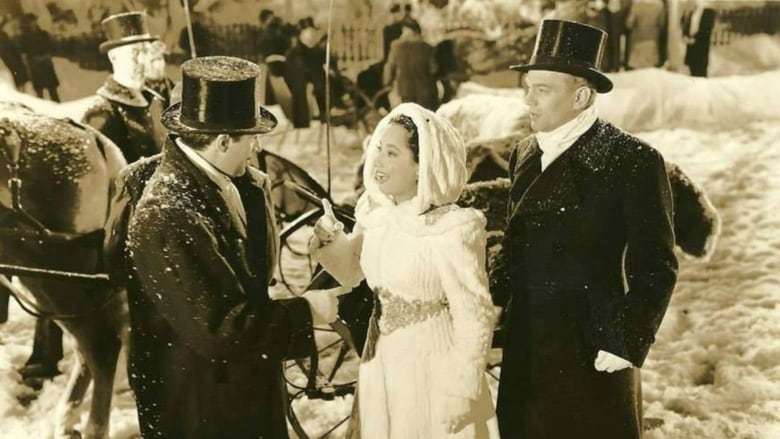
Lydia (1941)
Lydia MacMillan, a wealthy woman who has never married, invites several men her own age to her home to reminisce about the times when they were young and courted her. In memory, each romance seemed splendid and destined for happiness, but in each case, Lydia realizes, the truth was less romantic, and ill-starred.
Watch Trailer
Cast


Similar titles
Reviews
For a melodrama with a modest budget, this production is surprisingly sophisticated. You may find the story somewhat plodding, particularly in the first half, but after Lydia discovers her true calling in helping blind children, the cinematography takes on some striking symbolism. You can further appreciate the attention to detail in some of the sets and costumes, particularly when attention is drawn to darkness.Consider that this film was made in 1941 as the U.S. was poised to enter the war already raging in Europe, and women would soon be compelled to work and sacrifice. The romantic repression of Lydia thus seems irrational in context, and the ending suggests as much. It pre-dates the Hollywood work of Sirk, who would critique American clichés in his great '50s films, and similarly exposes some of the delusions of masochistic romance.
After dedicating a home for blind and crippled children, doddering old Merle Oberon (as Lydia MacMillan), who never married, attends a surprise gathering of her old boyfriends. The reunion is arranged by physician Joseph Cotten (as Michael Fitzpatrick). The son of Ms. Oberon's family butler, Mr. Cotten has also invited blind musician Hans Jaray (as Frank Andre) and future "Superman" George Reeves (as Bill Willard). A fourth beau, seafaring adventurer Alan Marshal (as Richard Mason) may or may not appear. He is one of the story's mysteries, so stay tuned. Oberon and her old suitors reminisce about their romances, in flashbacks beginning in 1897, when "the prettiest girl in Boston" was a desirable young maiden..."Lydia" is a re-make of director Julien Duvivier's "Un carnet de bal" (1937), re-fashioned entirely for star Merle Oberon by producer Alexander Korda. The original French export was a worldwide hit, with Mr. Duvivier and his remarkable original players receiving much critical acclaim. There are some significant changes in the story, but they do improve the central played by Mrs. Korda (Oberon). She is the reason for the picture, clearly. An impressive group was hired for this motion picture; their skills are intermittently evident, but the totality of the film is far too pretentious...Watch "Lydia" for the production values and moments of perfection. You'll find much of the latter in the work of supporting actress Edna May Oliver (as Sarah "Granny" MacMillan). This was the last appearance of Ms. Oliver, a classic character actress who became the most valuable player nearly every time she appeared on screen. Oliver's character appears in the flashbacks, as Oberon's wealthy and outspoken grandmother. She complains about mysterious internal ailments, but is considered a hypochondriac. The veteran actress died in 1942, of internal ailments. In real life, Oliver passed away peacefully in her sleep. On screen, she plays her expiration scene with Shakespearian majesty. This is how it should be done.****** Lydia (9/18/41) Julien Duvivier ~ Merle Oberon, Joseph Cotten, Edna May Oliver, Alan Marshal
"Lydia" from 1941 is a remake of Jacques Duvivier's 1937 'Un Carnet De Bal.' It retains the same plot and here is remade by Duvivier himself.Lydia MacMillan (Merle Oberon) is an old but still vital single woman who is visited by four ex-suitors: Michael (Joseph Cotton), Hans (Frank Andre), and Bob (George Reeves) who reminisce with her about the old days and how much they all loved her and wanted to marry her, and how, one way or another, it just didn't work out.It turns out that Lydia, from a good Boston family, only had one great love, Richard (Alan Marshal), who, after a few days together (during which I think we are to assume she lost her virginity) takes off in his boat. He leaves her a "Dear Jane" letter, stating that he'll be back after he clears things up with a woman who "has a claim on him." He gives her his grandmother's wedding ring and says he will keep sending her rings until he returns. She hears from him sporadically but she never sees him again.She can really never let go of her love for him, so she remains single, and devotes herself to her work with blind children, who attend a school she set up.In 'Un Carnet de Bal," the character is widowed and wonders how her life would have been had she married the other men who were in love with her, the men who danced with her one night that changed her life forever.The angle of "Lydia" is a little different and probably a little deeper. But it's still a film about nostalgia, youth, and disenchantment.Edna Mae Oliver plays Lydia's grandmother, and she's wonderful in this, her last film. She died the following year at the age of 59. People probably thought she was 75.Merle Oberon gives a lovely performance as Lydia, both as a young woman reveling in her beautiful gown, dancing, and being young, and as an older woman reminiscing. She tells each of the men that none of her really loved her because they never knew her; Michael loved "an angel," Hans, the blind composer/pianist she meets loved "the blond, blue eyed girl" described to him by a child whom he asked to describe Lydia and instead, she describes her doll; and Bob loved the young, wild thing that was ready to elope with him. Richard was the only man who truly knew her, and with him, she was herself. Or so she believes.Duvivier did the best he could with this Americanized version, but it can't live up to 'Un Carnet De Bal' with its French sensibility.Nevertheless, pleasant and worth seeing. A bittersweet story of a woman looking back on her life. We all do it at some point.
When is a remake not a remake is one that will keep the pedants occupied long past my own bedtime and on the whole I'm content to let them pick the bones out of it whilst I savor and/or am disappointed by the latest example to find itself on a screen near me. You could argue that one of the clues is when a remake retains the Original title, Kiss Of Death, Ocean's Eleven, The Manchurian Candidate etc but then along comes The Ladykillers, which retains both title and approximate plot of the Ealing entry but then moves the action several thousand miles West by several decades forward leading pedants back to Square One. When they change not only the country but also the title the additional factors that come into play are 1) are you, as a viewer, aware of this situation and 2) have you seen the original. I suspect that anyone who saw Julien Duvivier's magnum opus Un Carnet de bal will be disappointed, to say the least, with Lydia which he made four years later (1941) in Hollywood, whilst those who never saw, or perhaps have never heard of Un Carnet de bal, will find Lydia vastly enjoyable - it is, after all, the work of a Great director, albeit one saddled with a 'revised' script that tends to turn the original on its head. For the record Un Carnet de bal featured a recently widowed lady who, more or less on a whim, decides to trace the men with whom she danced at her very first ball as a teenager and is, inevitably, disappointed at what she discovers. The action was, then, set largely in the present with an elderly lady encountering elderly men; this time around the lady in question is a spinster and is reminiscing with three of her old beaux in the present which means that, by definition, the bulk of the film is flashbacks to forty years earlier. Those with no knowledge of Un Carnet de bal will relish the initial ball scene with shades of both Max Ophuls in the swirling camera and Busby Berkely in the phalanx of art deco lady harpists, and the lush score by Miklos Rosza whilst those who have seen Carnet will feel keenly the absence of Louis Jouvet, Fernandel etc and gaze open-mouthed at the hopelessly inadequate substitutes of whom only Joseph Cotton makes even a half-decent fist. Mixed feelings then; on the one hand it's still a Duvivier movie, on the other, there's only ONE Un Carnet de bal.


